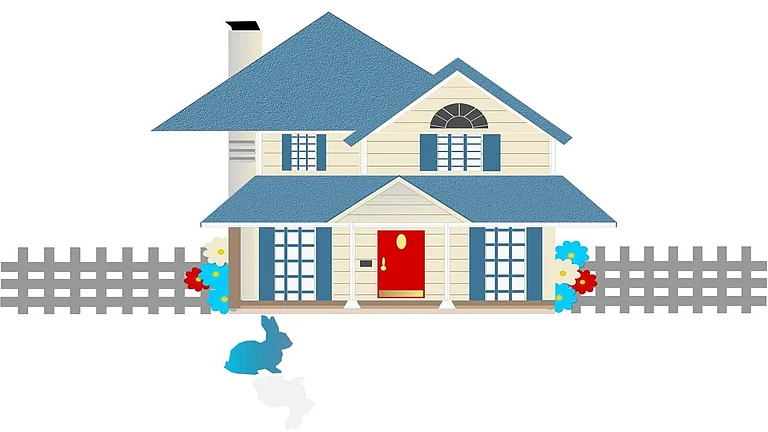Buying a house can remain a dream if the builder does not complete the construction or give possession or the construction quality or property layout is not as promised. Property disputes arising out of such reasons not only create a financial burden for buyers but also lead to frustration, especially since buyers may struggle to fight their case against well-resourced builders.
RERA Grievance Redressal: How To File A Complaint And Key Points To Remember
Property disputes are challenging to settle, but the RERA Act establishes rules to protect the rights of homebuyers in disputes with builders or agents
To address these issues, the government enacted the Real Estate (Regulation and Development) Act in 2016. The Act aims to bring accountability and transparency in the property market and safeguard buyers' interests. It also defines the complaint redressal mechanism to ensure timely hearings and resolutions for grievances.
Some of the key provisions of the Act include mandatory registration of the projects for the builder, keeping an escrow account to deposit project funds, proper disclosure to ensure transparency, standardised sale agreements, project completion timelines, the penalty for delayed completion, and a separate grievance redressal other than the court.
The rules apply to both residential and commercial properties.
Which Properties Require RERA Registration?
The Act mandates builders or developers to register their property before advertising and selling if the project involves a land area of more than 500 square meters or the number of units exceeds eight.
Avnish Sharma, Partner at Khaitan & Co, explains, "Ongoing projects without a completion certificate as of May 1, 2017, also require registration. However, projects involving less than 500 square meters of land, fewer than eight units, or those meant solely for renovation or repair without marketing or new allotment are exempted from registration."
When Can One File A Complaint Under RERA?
A homebuyer can approach the respective state RERA and file a complaint if experiencing issues with the builder, developer, or real estate agent. The issues could be delayed in possession, wrong information in the advertisement, false information about registration, charging advance payment, changes in the original layout, structural defects in construction, etc.
Note that homebuyers can do it on their own without hiring a lawyer.
"It is not mandatory to hire a lawyer to file a complaint under the RERA Act. An individual (homebuyer, allottee, or aggrieved party) can file a complaint directly with the RERA Authority or the Adjudicating Officer by submitting the required forms and documents, either online or offline, depending on the state's RERA portal," clarifies Sharma.
However, he adds that if the case is complex and involves arguments and compensation, hiring a lawyer would be a better choice.
How Does The Redressal Mechanism Work?
It is a parallel system to the traditional court system to resolve home-buyers property issues at the initial level. As per the procedure, after the complaint is submitted, RERA calls upon both parties to hear their arguments.
After listening to the parties and satisfying themselves with the information provided, the Authority gives the decision. The decision is binding, and non-compliance can result in penalty or even imprisonment.
However, if any party is dissatisfied with the RERA's decision, they can approach the state real estate appellate tribunal (REAT) within 60 days of the order date.
The timeline to resolve the complaint is generally 60 days at both levels, but it may differ from one to the other state based on the particular state RERA's regulations. At times, the timeline can be extended as well due to the complexity of the case, but in that case, the complainant is informed.
Sharma suggests, "If dissatisfied with the resolution, parties may file an appeal within 60 days, which the appellate tribunal is expected to resolve within 60 days as well."
If any party is not satisfied with the Appellate Tribunal's decision, they can approach the High Court and, ultimately the Supreme Court and appeal there.
How To File A Complaint:
• Visit the RERA website of the respective state
• Look for the complaint registration tab
• Enter the issue and all the other required details in the complaint form
• Verify the details, pay the fee, and submit the form
What To Keep In Mind Before Filing RERA Complaint?
Sharma suggests, "When lodging a complaint under the RERA Act, it is crucial to ensure that the issue falls within RERA's jurisdiction, such as project delays, non-possession, or construction defects. It is essential to gather all pertinent documentation, including the sale agreement, payment receipts, correspondence with the developer, and any photographs or expert reports detailing the issues. The complaint form should be completed with accuracy, clearly outlining the nature of the grievance and the desired resolution, while being prepared to pay any applicable filing fees. Further, timely follow-up is advised, as RERA is obligated to resolve complaints in an efficient manner."
A property dispute can be overwhelming both financially and mentally, but since a fast-track redressal mechanism exists for builder properties, it is beneficial to utilise it.



